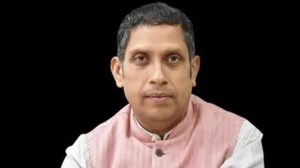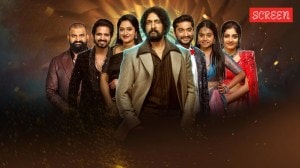Yaadein
Our conversations always began with me saying, 8220;Adab, Dutt Sahib8221;. The last time I said that was two weeks ago. He said, 8220;Sye...

Our conversations always began with me saying, 8220;Adab, Dutt Sahib8221;. The last time I said that was two weeks ago. He said, 8220;Syedaji, my apologies. You know how much I want to attend your meeting on the Muslim girl child on May 24. I would have airdashed from Mumbai just for that. But it seems impossible. Hope you understand.8221; He wanted me to send the report so that he could help us on the issue. The meeting went as scheduled. They even put up his name card. I had it removed. But, strangely, he kept figuring in the mindspace. I knew the the minister for youth affairs would be a great ally in this struggle. I made a mental note to send him a copy of the report as soon as it was ready.
It seems just the other day I had shared the dais with him at Hyderabad. He had invited me to address a youth festival. I began my speech by extolling Hyderabad. I then talked about what Dutt Sahib meant for those of my generation 8212; right from the time when we listened to 8216;Balraj8217; presenting Radio Ceylon8217;s Lipton ki Mehfil. Then came his first film: the unforgettable Railway Platform, followed by a slew of others including the immortal Mother India. But for me it was Sujata that was the most powerful. Who can forget Dutt Sahib phone sequence and Sahir8217;s lines: jalte hain jiske liye. As I spoke, I could see the young audience listening with rapt attention. What was it about the man that had this effect, I had wondered.
The answer seems to lie in the fact that for Dutt Sahib the journey never ended. He had an attractive personality and a talent and with that he wove his dreams of a secular India. He was ready to step into the quagmire of politics to achieve this. And there he stayed for 20 years 8212; the epitome of sharafat decency. As a Muslim I felt the confidence to share my lowest moments that Gujarat caused with him. To use sports to heal the trauma of the Gujarat massacres, friends had arranged a cricket series in Halol and Kalol in the Panchmahals. It was called 8216;Cricket for Peace8217;. A big function had been arranged in Delhi at which Dutt Sahib declared Dhanraj Pillai, Geet Sethi and P.T. Usha as 8216;Game4Change Ambassadors8217;. Sports, Peace, Youth all combined in one event! I saw the glow on Dutt Sahib8217;s face.
Many years ago, I had seen a film that left me shattered. It was called Ye aag kab bujhegi? In it, Dutt Sahib had confronted the problem of dowry and bride burning. At that time I was miles away from activism. The film flopped. No one could stomach the reality he had the courage to show. I felt nauseous after watching it. Later, when I dealt with cases of dowry deaths, I felt the same nausea. But not many saw it. 8220;I can never forget that film,8221; I once remarked to Dutt Sahib. He smiled, 8220;But it didn8217;t run for long.8221;
Today, the world is emptier. I offer these lines from Firaq Gorakhpuri as a tribute to Dutt sahib from all his friends: Ab yaad-e-raftagaan ki bhi himmat nahin rahi/Yaaron ne kitni dur basayi hai bastiyaan No courage to remember companions,/How far have they built their habitations, my friends.
The writer is member, Planning Commission
- 01
- 02
- 03
- 04
- 05






























